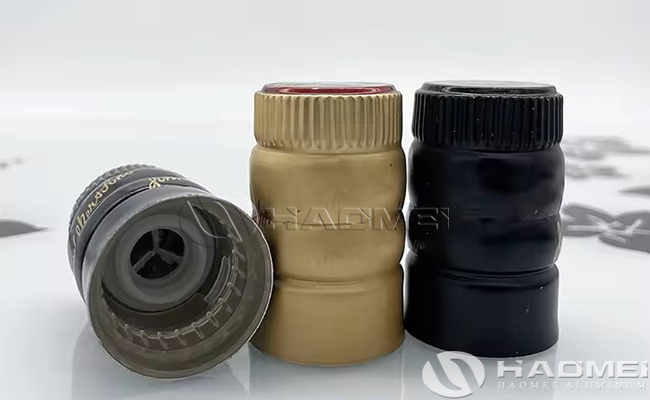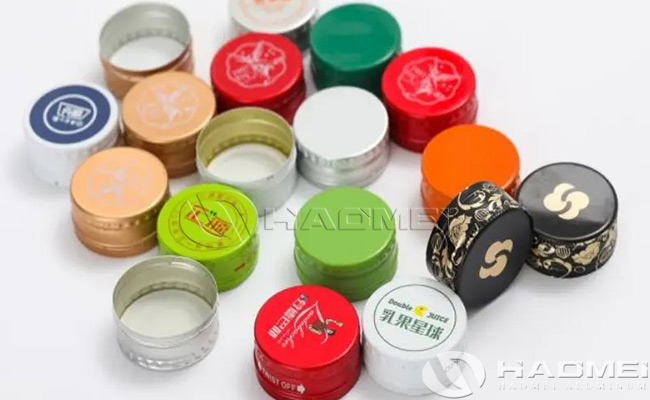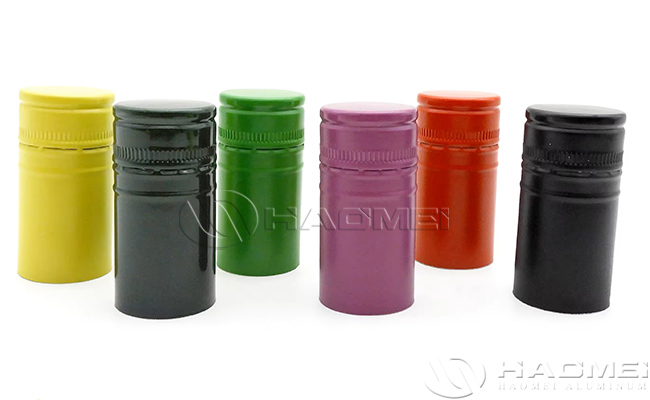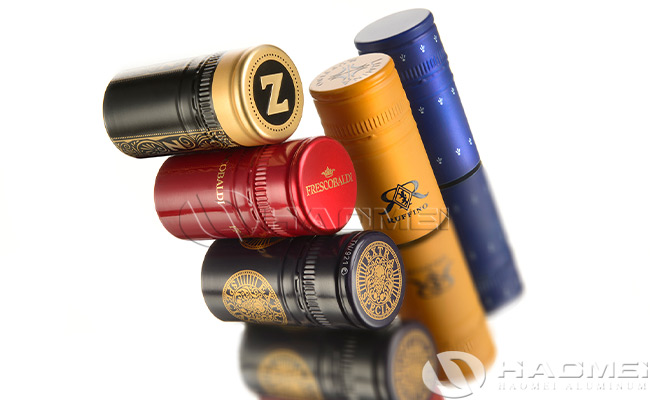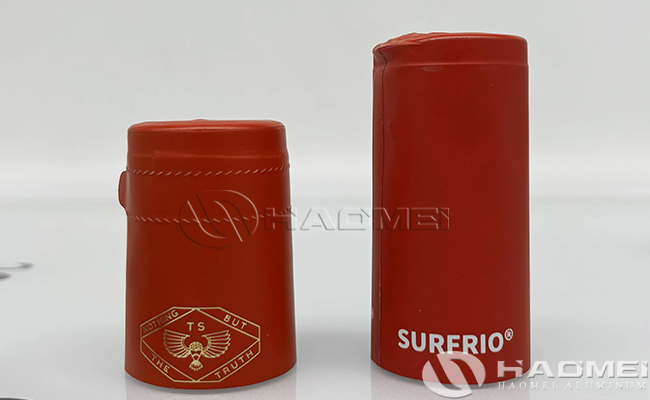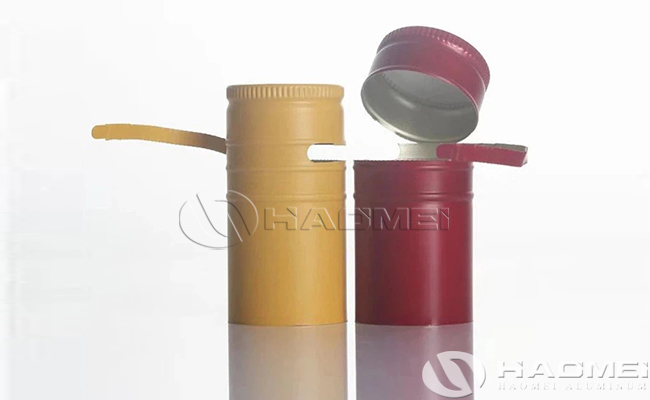Aluminum ROPP (Roll-On Pilfer Proof) caps for vodka whiskey are a common type of bottle caps, primarily used for liquor alcoholic beverage packaging. Aluminum ROPP caps are metal closures manufactured through a roll-forming process and are widely used in the packaging of spirits (such as vodka and whiskey), wine, pharmaceuticals and high-end foods. Their core functions of aluminum ROPP vodka whiskey caps include sealing, leak prevention, anti-counterfeiting, and double-opening prevention. A serrated pattern is formed on the bottle's threads through a rolling/rolling process to ensure the safety of the contents.
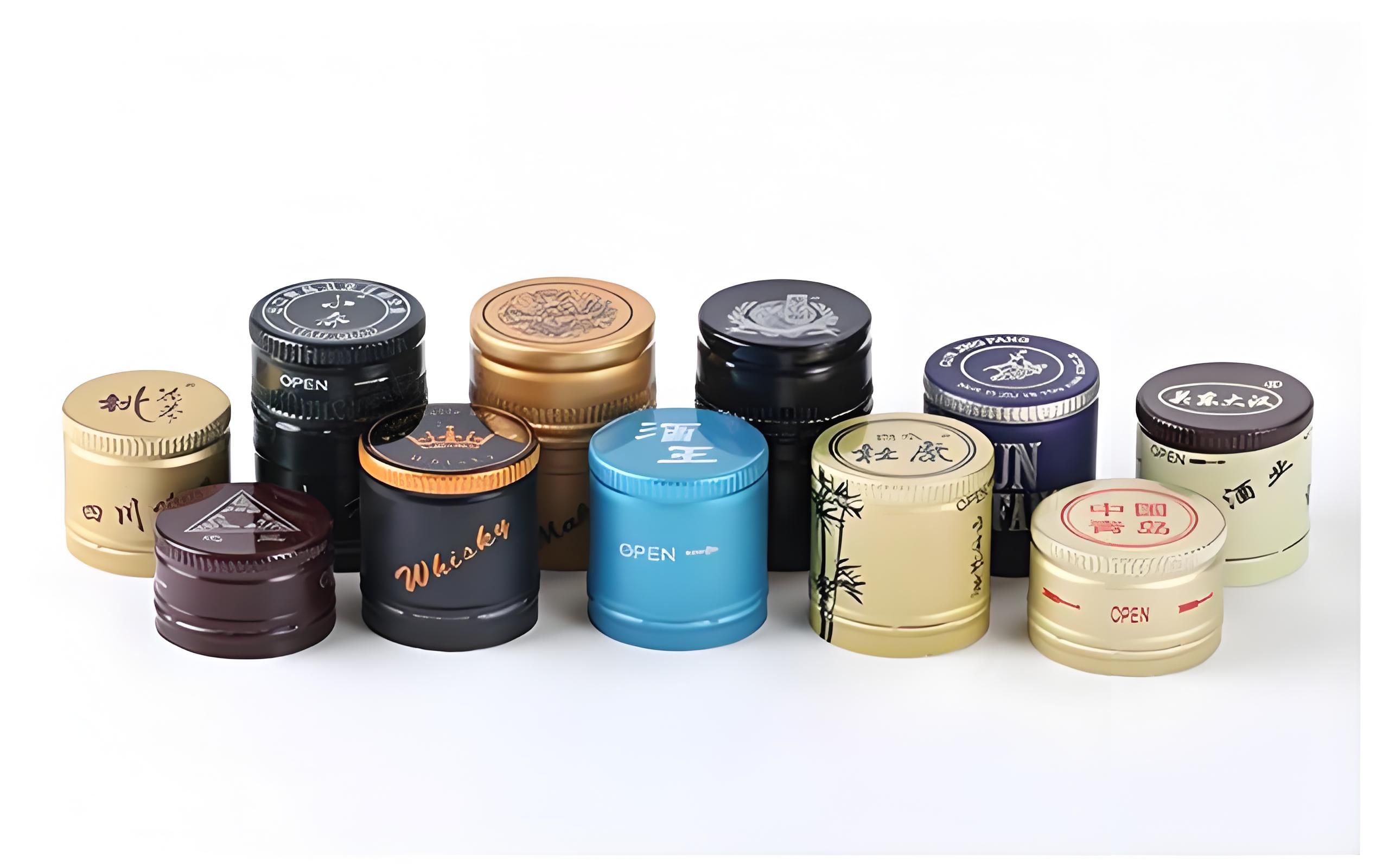
Aluminum ROPP vodka whiskey cap product details:
- Material: Made from high-quality aluminum (such as 3105 and 8011 aluminum alloys) through stamping, knurling, and ring cutting, the surface can be finished with solid or color printing, hot stamping, or laser marking.
- Inner Liner: Available in a variety of materials, including PVC and Saranex, they provide an excellent seal to prevent alcohol evaporation or leakage.
- Sizes: Common diameters include 18mm, 20mm, 22mm, 28mm and 30mm.
- Surface Finishes: Solid color, color printing, hot stamping, laser marking.
- Extended Functions: Caps with inner lining, anti-tamper ring, easy-tear caps, etc.
- Compatible Bottles: Glass and PET bottles, compatible with both recyclable and non-recyclable containers.
Aluminum ROPP caps for vodka whiskey precisely match material properties, functional design, and industry needs. Their core advantages can be broken down into the following four points, each with specific support:
1. Sealing: Protecting the flavor of the wine
Using 3105 and 8011 aluminum alloys, the aluminum oxide film on the surface resists alcohol corrosion and prevents chemical reactions that affect the taste. A butyl rubber or EVA gasket is incorporated inside for a double-layer seal.
In practice, the oxygen permeability can be controlled to below 0.01cc/bottle/day, effectively preventing oxidation and alcohol volatilization, making it particularly suitable for long-term whiskey storage.
2. Security: Tamper-proof and damage-resistant.
To ensure tamper resistance, the bottle cap's built-in anti-theft ring breaks into three irreversible parts upon opening, allowing consumers to visually determine whether the product has been opened, reducing the risk of counterfeiting.
To ensure damage resistance, the aluminum vodka bottle cap boasts a tensile strength exceeding 200 MPa. After 1,000 cycles of simulated transport vibration testing, the seal integrity remained at 99.8%, making it suitable for long-distance transportation.
3. Cost-effectiveness: Suitable for large-scale production.
Aluminum ROPP caps offer high production efficiency, enabling automated production of hundreds of units per minute at a cost of only 0.1-0.3 per unit, significantly lower than cork and glass stoppers.
Logistics costs are low, with aluminum ROPP caps weighing only one-third of plastic caps. For example, using aluminum whisky bottle caps in a 20-foot container can increase whiskey shipping capacity by 15% and reduce logistics costs by 8-10%.
4. Environmental Protection and User Experience: Balancing Sustainability and Practicality
Environmentally, the aluminum recycling rate exceeds 70%, and the energy consumption of recycled aluminum production is only 5% of that of primary aluminum, complying with global environmental regulations (such as the EU's 65% packaging recycling rate requirement by 2030).
As for the consumer experience, the opening torque is controlled at 1.5-3.0 N·m, allowing one-handed operation. It is re-tightenable (with less than 10% resealing torque loss), meeting multiple uses. The metallic finish also enhances the brand's premium quality.
Aluminum ROPP caps are widely used in high-end alcoholic beverages such as vodka and whiskey, enhancing product quality and counterfeit prevention. The widespread adoption of aluminum ROPP vodka whiskey caps is fundamentally the result of the coordinated evolution of materials science, industrial design, and consumer demand. Its transformation from functional packaging to value-added packaging not only meets the spirits industry's rigid demands for quality, safety, and efficiency, but also promotes sustainable development across the entire alcoholic beverage packaging sector through its environmentally friendly features and brand empowerment.
MESSAGE
RECOMMENDED PRODUCTS
PRODUCTS
CONTACT US
Add:Zhengzhou, Henan, China

